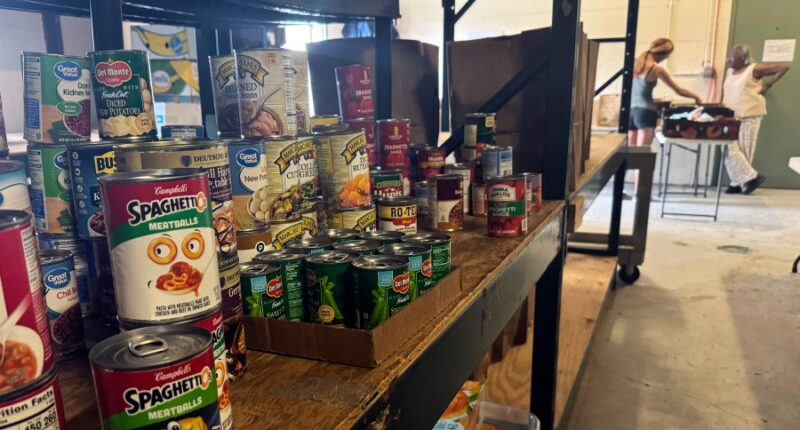Share this @internewscast.com

CHICAGO (WGN) — As President Trump’s budget bill comes into effect, hundreds of thousands in Illinois are preparing for reductions to the Supplemental Nutrition Assistance Program, which offers food aid to low-income families.
While the White House touts the comprehensive tax and expenditure package, known as the One Big Beautiful Bill, as a triumph for workers, families, and the future of America, some state legislators argue the cuts will impact Illinois’ most at-risk residents and could have broader economic consequences.
“The cuts that President Trump has now signed into law will devastate entire communities,” Lt. Gov. Juliana Stratton said Thursday.
This budget plan includes $186 million in reductions to SNAP over the next decade. Lawmakers indicate that, of the 1.8 million Illinoisans dependent on SNAP yearly, around 360,000 individuals may face losing their benefits.
“It’s heartbreaking to tell a 9- and a 12-year-old that mom can’t buy the foods that they like to eat because she has to buy foods that she thinks will feed the whole family for one month,” said Natasha McClendon, a substitute teacher assistant at Chicago Public Schools, a mother of three and spouse to a husband living with a disability.
McClendon visits a food pantry once a month to help feed her family. She says they rely on her husband’s Social Security benefits, her paycheck and SNAP benefits but fears the new work requirements under the law could put her and many others at risk.
“This bill means for many, help with the most basic need will never arrive,” said Dulce Quintero, secretary of the Illinois Department of Human Services.
Reps. Bill Foster and Sean Casten heard concerns at a roundtable at the Northern Illinois Food Bank they held Thursday.
Some food banks tell WGN they’re already working to meet a great need than ever before. Steve Ericson, director of Feeding Illinois, says the organization has had to prepare and make cuts ahead of an expected reduction in resources. The program, he said, provides nine meals for every one meal a food bank can provide.”
“I am seeing such an increase in what I want to call the middle-class poor, including us, that I’m just shocked,” said Lori Arient with Stone Soup Social. “Unlike the inner city, Marengo is a food desert.”
The National Grocer’s Association says SNAP also supports more than 18,000 jobs in Illinois, including farmers.
“When you cut these benefits, this will affect the local economy and the economy will suffer,” said Connie Spreen, co-founder and executive director of the Experimental Station.
Republicans argue the cuts are about addressing waste and fraud rather than hurting families in need. Under the new law, some of the financial burden for SNAP benefits will shift from the federal government to the states.











